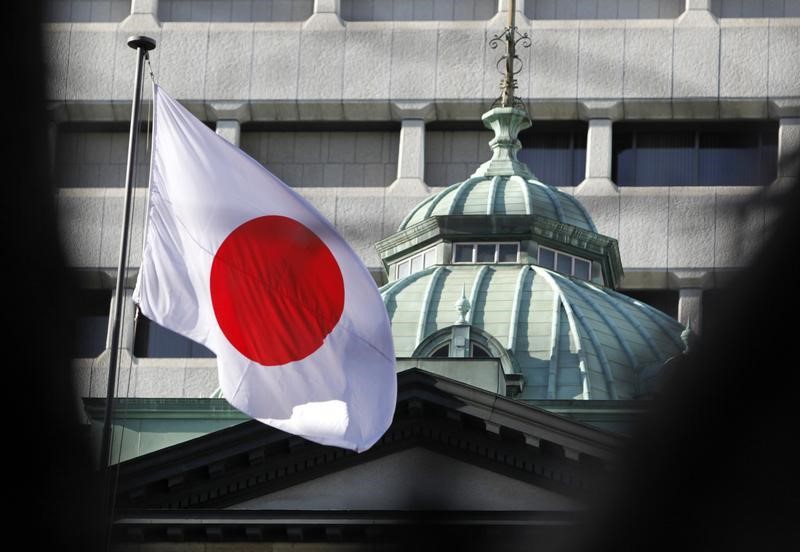Janux stock plunges after hours following mCRPC trial data
Investing.com-- The Bank of Japan is widely expected to keep its benchmark policy rate unchanged at the conclusion of a meeting this Friday, although analysts expect the central bank to tighten policy by reducing its pace of bond purchases.
The BOJ is likely to keep its benchmark short-term rate at 0.1%.
The central bank had hiked rates for the first time in 17 years in March, bringing them out of negative territory on a forecast of higher inflation in 2024. This notion was largely driven by expectations of higher wages, after several labor unions won bumper wage hikes for the year.
The BOJ had also ended its yield curve control program, and said it will begin tapering its bond purchases this year.
But Japanese inflation readings have largely underwhelmed since March, raising doubts over just how much headroom the central bank has to begin further tightening policy.
Japan’s economy also contracted in the first quarter, necessitating the need for supportive policy in the near-term.
This is expected to limit the BOJ’s capability to tighten policy, which fed into expectations that while the central bank will still keep rates steady, it will tighten policy through other means.
Analysts at Evercore said the BOJ will trim its bond purchases to 5 trillion yen per month from 6 trillion yen.
“We think the Board will state that conditional on market functioning purchases will likely be reduced further over coming quarters, though we do not expect it to commit to a full tapering schedule in advance.”
Smaller bond purchases herald less liquidity flowing into the Japanese economy, which in turn tightens monetary conditions.
When will the BOJ hike rates?
But while the BOJ is expected to move towards normalizing policy with its tapering of bond purchases, analysts presented varied expectations on when the central bank will hike rates next.
Evercore expects a hike between July to October, which could put Japanese rates at 0.25%. Depending on inflation and the Japanese economy, the BOJ could hike rates to 0.75% by mid-2025.
Other brokerages had a different outlook on the BOJ. ANZ wrote in a recent note that the BOJ could hike rates by as soon as June, citing recent weakness in the yen. Governor Kazuo Ueda had warned recently that any potential threats to inflation from a weaker yen could invite rate hikes from the BOJ.
UBS expects the BOJ to only begin hiking rates by October, but flagged the possibility of a surprise hike in July.
On the other hand, Credit Agricole (OTC:CRARY) said in a recent note that it does not expect the BOJ to begin hiking rates until 2025, citing weakness in the Japanese economy. But the central bank is still expected to taper its pace of bond purchases.
